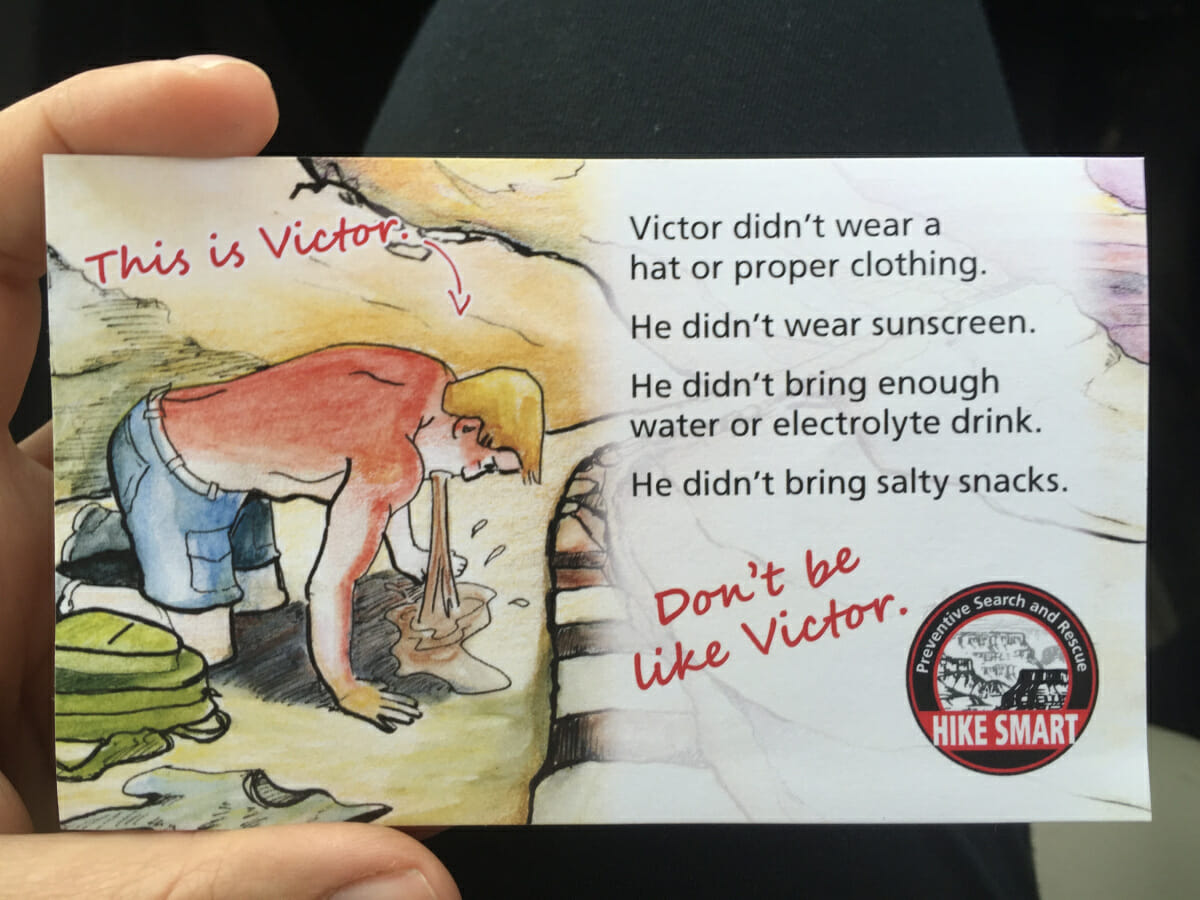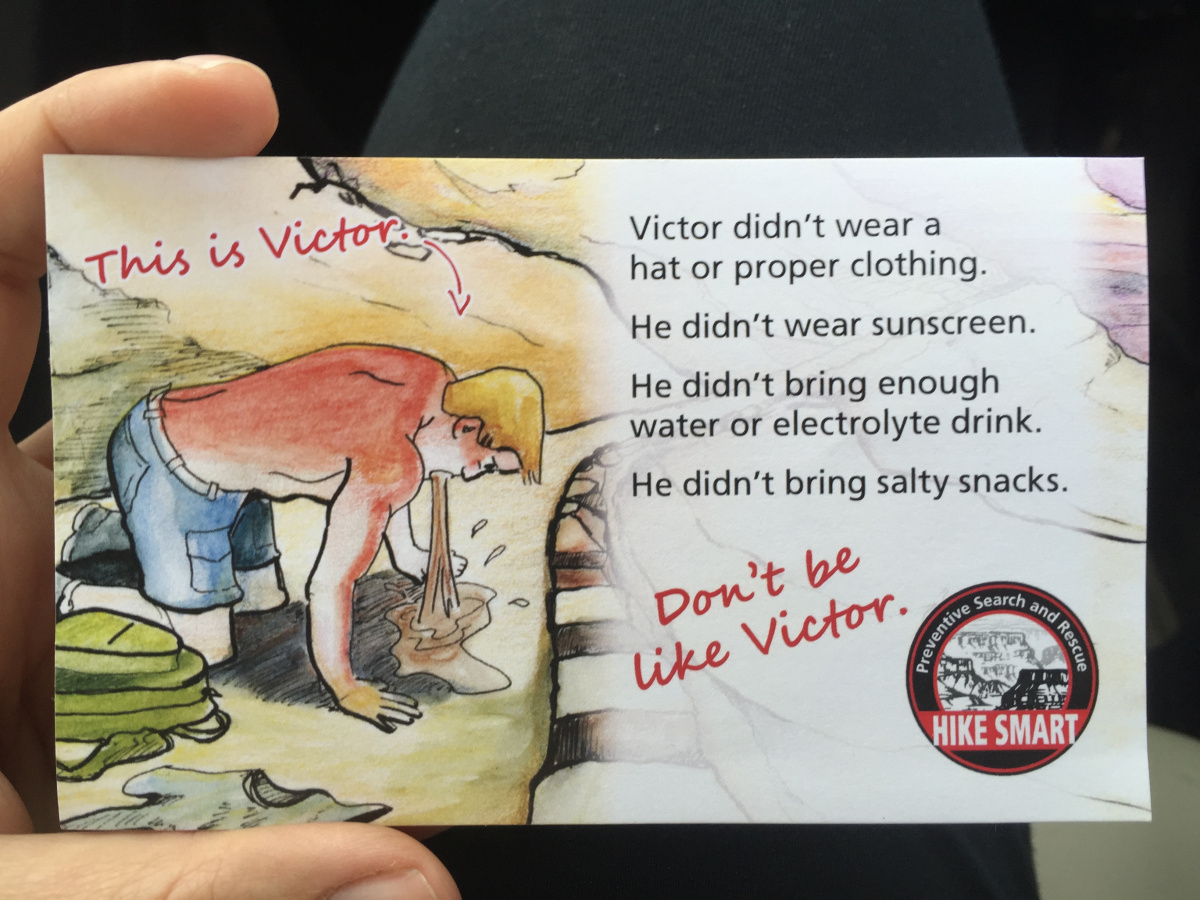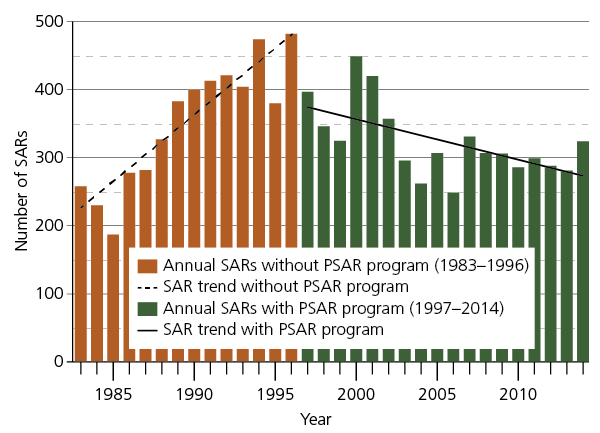Seven Principles
Visitor Search and Rescues Drain Park Resources


Ridgway, CO: The first principle of Leave No Trace is Plan Ahead and Prepare. We often talk about this principle as setting one up for success to be able to practice the other six Leave No Trace principles (i.e. if you’re prepared with a trowel, you’re more likely to dig a cat hole for your human waste). However, the often overlooked side of Plan Ahead and Prepare lies when things go wrong due to poor planning or lack of preparation. Here we’re talking about Search and Rescue (SAR).
Search and Rescue Costs
In 2017 alone, the National Park Service reported spending approximately $3.3 million dollars on 2,890 Search and Rescue operations, which occupied a staggering 83,000 hours of NPS staff time. These SAR operations divert dollars from being spent on trail maintenance and park improvements. They pull backcountry rangers from protecting the park’s natural resources and interpretive rangers from communicating better with the public. Overall, these operations represent a preventable drain on our already strained National Park Service resources.
In addition, the ecological impacts of SAR operations can sometimes be significant and unavoidable. Through no fault of their own, the dozens of search team members and medical staff can often create unwanted vegetation damage, erosion, and other impacts to the environment through the course of a SAR operation. Helicopters can act as a stressor on wildlife, and also represent a detraction from the nature experiences of other visitors.

Preventative Search and Rescue
However, Search and Rescue costs appear to be on the decline, and we’re hopeful that the hundreds of millions of visitors to our National Parks each year are learning better how to Plan Ahead and Prepare. For example, Grand Canyon National Park has observed a marked decline in SAR operations after the implementation of their successful Preventative Search and Rescue (PSAR) program, designed to better educate visitors about the hikes they are embarking on, and what is required of them in pursuing adventure within the park’s boundaries. Prior to their PSAR program, Grand Canyon was spending almost $1 million annually on SAR operations.

How You Can Plan Ahead and Prepare
Careful planning and preparation can make or break an outdoor adventure, and can help your favorite park or protected place use its time, money, and resources in a more efficient manner. Follow these simple tips when planning your next outdoor adventure:
- Select destinations that match your goals, skills, and abilities.
- Gain knowledge of the area you plan to visit from land managers, maps, and literature.
- Choose equipment and clothing for comfort, safety, and Leave No Trace qualities.
- Always tell someone where you are going, and when you plan to return.
- Pack the 10 Essentials, and carry plenty of food and water.
- Consider taking a first aid, or wilderness first aid course, and be ready to use those skills on the trail.
Enjoy Your World. Leave No Trace.
Leave No Trace’s Donielle Stevens and Aaron Hussmann are part of the 2018 Subaru/Leave No Trace Traveling Trainer Program that provides free, mobile education to communities across the country. Proud partners of this program include Subaru of America, REI, Eagles Nest Outfitters, Deuter, Thule, Taxa, and Klean Kanteen.
Sources:
Economic impacts of search-and-rescue operations on wilderness management in the national parks: https://www.nature.nps.gov/ParkScience/Archive/PDF/Article_PDFs/ParkScience28(3)Winter2011-2012_103-105_Ward_et_al_2854.pdf
Preventative Success! Grand Canyon’s Response to Search and Rescue Overload: https://www.nps.gov/articles/parkscience33-1_99-107_malcolm_heinrich_3864.htm
National Park Service 2017 Annual SAR Dashboard:
https://nps.maps.arcgis.com/apps/opsdashboard/index.html#/b526c87ae21f4a669eb6c9238c2c4bcf
Let’s protect and enjoy our natural world together
Get the latest in Leave No Trace eNews in your inbox so you can stay informed and involved.
